The omission you have so aptly discovered can be a source of a real problem. In order to benefit fully from C's static type checking across a multi-translation-unit program (which is almost anything nontrivial), we must ensure that the site which defines an external name (such as a function) as well as all the sites which refer to the name, have the same declaration in scope, ideally from a single source: one header file where that name is declared.
If the definition doesn't have the declaration in scope, then it is possible to change the definition so that it no longer matches the declaration. The program will still translate and link, resulting in undefined behavior when the function is called or the object is used.
If you use the GNU compiler, you can guard against this problem using -Wmissing-prototypes. Straight from the gcc manual page:
-Wmissing-prototypes (C and Objective-C only)
Warn if a global function is defined without a previous prototype
declaration. This warning is issued even if the definition itself
provides a prototype. The aim is to detect global functions that
fail to be declared in header files.
Without diagnosis, this kind of thing, such as forgetting a header file, can happen to the best of us.
One possible reason why the header was forgotten is that the example project uses the "one big common header" convention. The "one big common header" approach lets the programmer forget all about headers. Everything just sees everything else and the #include "calc.h" which makes it work is just a tiny footnote that can get swallowed up in the amnesia. :)
The other aspect is that the authors had spent a lot of time programming in pre-ANSI "Classic" C without prototype declarations. In Classic C, header files are mainly for common type declarations and macros. The habit is that if a source file doesn't need some type or macros that are defined in some header, then it doesn't need to include that header. A resurgence of that habit could be what is going on here.
